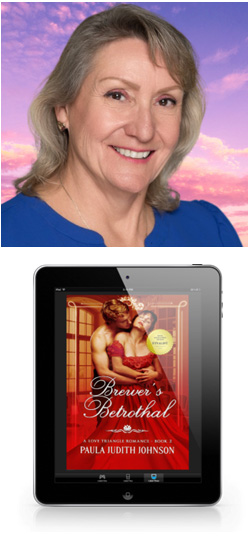Dear Friend,
One of the most memorable events of my life was my tenth birthday. My grandmother, who was the Executive Secretary to the Airport Manager of LaGuardia Airport, was coming to get me to fly me back to NYC! I lived in Massachusetts at the time, so this was my very first plane ride. I was nervous, and once grandma explained about the white bag in the seat pocket, I held it nearby for most of the flight.

We arrived safely, and I didn’t use the white bag! Hurrah!
The next day, grandma planned an excursion to see a Broadway show!! It was a big deal then, with women wearing stockings, heels, and white gloves! Everyone dressed for the occasion. It was a first for me for all of it! (Pantyhose had not been invented yet.) I remember grandma responding to my complaint that the stockings were uncomfortable, “It hurts to be beautiful!”
Today, except for maybe having a red-carpet appearance or being presented to royalty, I don’t know that women, or men, are willing to be uncomfortable and dress up for occasions. The hem lengths were modest and below the knees. And gloves, except for a Halloween costume, or a very formal party, I don’t think anyone today wears dressy gloves. Warm gloves in the winter, and protective gloves in a health or crime scene setting.
Going further into what was accepted and acceptable decades ago and further in the past, consider arranged marriages, clothing that really clothed the body – head to toe, especially for women. Women wore hats, often decorative, as a matter of form to public events, or “going out.” Men were expected to remove hats in a building, as a matter of respect.
Even deeper into customs and manners, everyone was expected to say “please” and “thank you.” Children were expected, especially at the dinner table, to only speak when spoken to or requested to. Father was the head of the family and retold the events of his work day.
Having a date was a big deal. Approval of the date and the person was required. Curfews existed. If a teen was going to a party, parents called the parents of the person holding the party to make sure there would be adult chaperones.
Information on procreation was scarce and not discussed. For girls, mothers were often embarrassed to discuss “periods,” so unprepared pre-teens might be horrified, thinking they were bleeding to death.
When the 1960s came along, suddenly most of the above was thrown out the window. “Free love” was the order of the day, but not to everyone. If a girl became pregnant, there were whispers and the girls were often whisked off to “visit an aunt.” The boys didn’t usually suffer the consequences.
Contrast everything in previous centuries with our more flexible manners and customs of today. Certainly, in the 19th century, around the War of 1812, as is the setting in our guest author Paula Judith Johnson’s book, Brewer’s Betrothal, customs and manners were strict.
To start, the male lead, a brewer’s son is considered unacceptable as a mate for a moneyed family’s daughter. Being alone with a man in a room is considered dishonorable. When the headstrong daughter runs off with the brewer’s son, she is considered tainted forever. When she realizes she is pregnant, scandalous!
Showing your ankle was a scandal! Bosoms/decolletage were okay for display, but once married, matrons were expected to be more circumspect.
Women working in business? The only women in “business” were prostitutes. Run your family business? The men in the business would be affronted to follow a woman’s direction and orders.
Not a time most of us would want to live in. The customs, manners, and rules were so restrictive! For example, in the Bridgerton series, the popular novels and shows, when the lead characters wind up alone in a garden, they work hard to conceal that fact. The woman’s reputation would be ruined!
All of the restrictions and rules make my head hurt. There are enough problems that modern people need to confront, so adding on the manners and customs of previous eras, makes it hard for people to accept. Growing up I heard the phrase, “mind your manners.”
Thus, I write contemporary romance. I know there are some people who engage in arranged marriages. The many websites that propose to “match” people certainly has an element of arranged relationships. I even went to an old-fashioned matchmaker myself when I was tired of the dating scene. It seemed that at least the matchmaker could interview the candidates to see if there was a hint of compatibility. But, I’m not advocating for that. In my case, the “match” didn’t work out.
When you look at the current social scene and compare it with that of Brewer’s Betrothal in the early 1800s, you might consider yourself lucky. If a woman only had a choice of finding a husband, being a “spinster” in your family’s home, or a prostitute, the treatment might not be much better in any of the three choices. Today, you might think, “What manners?”

Now it’s time for introductions. First, you’ll meet our guest author Paula Judith Johnson, an award-winning author of steamy romance novels, an Amazon Best-Selling author, hostess of the Writing Romance Mastery Summit, and the Seductive Storylines book coach. Then you’ll learn more about Paula Judith and her writing from questions I’ve asked her. And, last, you’ll see my short review of Brewer’s Betrothal. The historic novel includes tropes (common themes) of forbidden love and love triangle.
Paula Judith Johnson
PAULA JUDITH JOHNSON ON BREWER’S BETROTHAL
Originally, what made you decide to set your book in 1812? What was compelling about that for you?
My husband and I had been members of a black Powder Mountain Man shooting club for about 20 years. During that time, I learned a lot about what it was like to live 200 years ago—the customs and the dress codes and just a lot of things. That fascinates me. Additionally, most people don’t realize the War of 1812 was our second war of independence from England. If we had lost that war, which we almost did, we would have become subjects of England again, so I like to educate my readers along with entertaining them. There’s not a lot of education here but there is a lot of entertainment and that’s why I use the era around the War of 1812 for my novels.
 There was obviously a great deal of research involved in writing Brewer’s Betrothal.
There was obviously a great deal of research involved in writing Brewer’s Betrothal.
Manners and customs of the era, the brewing industry, the War of 1812, smuggling–so much! How did you research all of these topics? Did you include some of these topics from the beginning, or did you find things which required research you added as you developed the plot?
Most of my research was done before I wrote. Brewer’s Betrothal is my second historical romance novel. The first one, Sweetbriar, takes place in the years leading up to and just after the beginning of the War of 1812.
As an independent woman, how do YOU feel about the subservient role woman contended with in the 19th century, from inheriting property to working in an office and supervising men, to being alone in a room with a man? How did your own opinions influence what you wrote and how you created your characters?
I wouldn’t have fared well. I’m too outspoken. I was raised in a family of males.
My mother was a tomboy; I have 4 brothers & no sisters. On my father’s side of the family, I was the only girl out of 15 grandchildren. That’s a lot of testosterone. We didn’t associate very much with my mother’s side of the family and I have only 2 female cousins there.
As many authors reflect on their writing, many have wished they had changed something. Have you wished you could change any aspect of Brewer’s Betrothal? (Characters, for example Edythe, as she seemed to be an honest person in the beginning, but changed to stealing and lying. And why would the sheriff want to marry her?)
Edythe didn’t change. She hid her true personality at first to gain acceptance. She had no choice because women of the era didn’t have options the way we do today. An unmarried woman on her own could live off the largess of relatives or become a prostitute. Very few alternatives existed.
I like my sheriff. Unfortunately, he didn’t realize Edythe’s true nature. Maybe she could change if given the opportunity.
Other personal comments? For instance, I gather you spent years writing each book. What held you back? Have you found the process easier lately? Do you plan to write more books, on a non-fiction, or other fictional series?
This book took two years to write. I’ve been working on a sequel for much too long. My other interests, like the Writing Romance Mastery Summit and coaching other romance authors, take much of my time. When the sequel, Smuggler’s Surrender, comes out, it will focus on the British smuggler from Brewer’s Betrothal.

Shelley’s Review of BREWER’S BETROTHAL
Paula Judith Johnson’s “Brewer’s Betrothal” is a formidable novel of the 1812 era which will make many contemporary readers angry! The male and female protagonists are victims of class prejudice and mores and manners of the times. Women of the middle and upper classes were expected to be ornamental, doing needlework, singing and playing the piano. They could be traded away in marriage to help a family build its fortune.
The male protagonist is trying to ensure his family business survives, but is accused of a serious crime, for which he’s trying to prove his innocence.
For a woman to show her ankle, scandalous! To be alone with a man was tantamount to trapping a man into marriage. Having a woman be in charge of men in a business, even if it was her family’s business, was unthinkable! Men wouldn’t take her direction anyway.
The novel is filled with heart-stopping moments, love, action, cheating, lying, and treating women as chattel. You’ll turn pages, hoping for the hero’s redemption and the surprising actions of the woman he loves. Highly recommended!
Brewer’s Betrothal is available on Amazon – https://rb.gy/7btvbb
http://www.paulajudithjohnson.com/
She’s on facebook at: https://www.facebook.com/groups/romancedreamweavers

PROGRESS ON BOOK 4
I’ve passed the three-quarter point! And, I think I have a title – finally! From a very poetic song from before I was born, I’m considering making Book 4’s title –
The Greatest Thing – (The full quote is – “The greatest thing you’ll ever learn is just to love and be loved in return.”
This is from the song, “Nature Boy,” written by Eden Ahbez and popularized by Nat King Cole and many other singers and musicians, which was a national Number 1 hit for eight weeks!)
My characters are certainly learning how to love each other and accept the love. With Will and Louisa, they’re coping with some of the hardest challenges a young couple can have. (No spoilers here!)
Joe and Sophie get married and are adjusting to married life and sharing everything. While loving the joy of their marriage, Sophie is worried about her mom, who is going through a bitter divorce.
If you like “The Greatest Thing” as Book 4’s Title, please let me know.
Contact me: Shelley@ShelleySommers.com
If you’re reading this blog for the first time, welcome! If you’d like to read a free, steamy contemporary short story, go to the bottom of the homepage and sign up. You’ll receive the link to a new short story. (Not part of the Louisa’s Vineyard series.)

